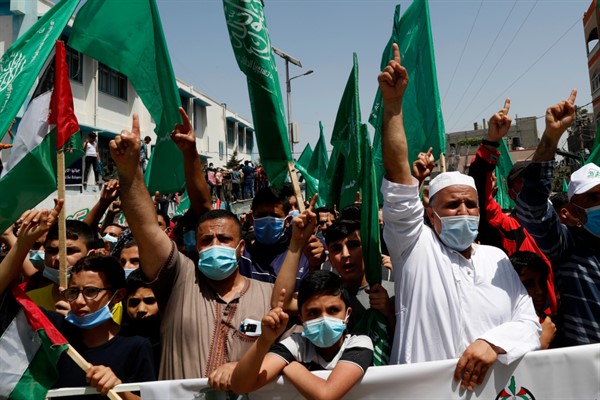The cease-fire that entered into force last Friday brought an end to 11 days of fighting between Israel and Hamas, leaving behind at least 248 Palestinian and 12 Israeli dead, as well as untold destruction in Gaza. Yet even as the fragile truce is holding thus far, the power struggle between the two largest Palestinian parties—Hamas and its rival, Fatah—seems poised to only intensify.
The most recent round of violence was the fourth since 2007, when Hamas violently wrested control of Gaza after winning elections the previous year. It took place against the backdrop of an intense political crisis triggered by Palestinian President Mahmoud Abbas’ decision to call, then cancel, the first round of Palestinian national elections since that 2006 vote. Abbas’ Fatah, which controls the Palestinian Authority from the city of Ramallah, in the West Bank, was largely seen as irrelevant during the Gaza conflict, and is reeling from internal divisions that were exposed and deepened by the ill-conceived election gambit.
Hamas, on the other hand, is seeking to capitalize on Fatah’s weakness, as well as the sympathy generated by its war with Israel, in order to assert itself as the dominant party in Palestinian politics. Yet as the dust settles and the slow process of reconstruction begins, Palestinian political dysfunction will remain, with meaningful national unity unattainable amid deepening public alienation from the political system.

